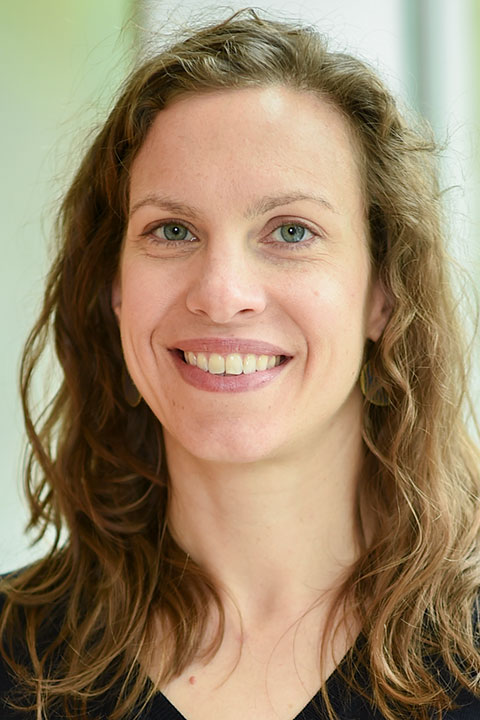Astronomy
Columbia University Libraries supports education and research in the Department of Astronomy and affiliated departments and centers including the Department of Physics, the Physics and Astronomy Department at Barnard College, the Columbia Astrophysics Laboratory, the NASA Goddard Institute for Space Studies, and Nevis Laboratories. Subject coverage is intended to support research and educational efforts of relevant topics of interest to the Department of Astronomy including (but not limited to) cosmology, galaxy formation and evolution, high-energy astrophysics, planetary science, stellar science, instrumentation, observational astronomy, computational astrophysics, and theoretical astrophysics research.
Astrophysics materials have always been collected and housed with physics materials at Columbia University. The majority of astrophysics resources are freely available online through the astronomical community. For example, NASA, the Smithsonian Astrophysical Observatory, and the Harvard-Smithsonian Center for Astrophysics provide access to preprints in astronomy and astrophysics in electronic format through SAO/NASA Astrophysics Data System. Cornell University runs arXiv, another free, online preprint server that Columbia University has supported since 2010 through membership fees. The majority of the Libraries’ astrophysics print collections were transferred to the Libraries’ shared off-site storage facility (ReCAP) after the Physics Library closed in 2009. High-use print resources are held in the Science & Engineering Library.
This document outlines the Libraries’ general policy on collections, but it is not intended to be a rigid set of rules; collection suggestions from students and faculty are welcome. (See contact information below.)
a. Undergraduate
The Libraries collects materials in support of undergraduate students from Columbia College (CC), General Studies (GS), and the School of Engineering and Applied Science (SEAS) who take courses in the astronomy as majors or non-majors. Undergraduates may major in either astronomy or in astrophysics or may complete a concentration in astronomy. The Libraries also supports undergraduate students from Barnard College (BC) in their research.
b. Graduate and Professional Schools
The Libraries collects materials in support of MA, MPhil, and PhD programs in astronomy and astrophysics, offered by both the Department of Astronomy and the Department of Physics.
c. Institutes, Interdisciplinary Programs, etc.
Materials collected by the Libraries support the research and educational efforts of several interdisciplinary centers and laboratories:
Columbia Astrophysics Laboratory
NASA Goddard Institute for Space Studies
Nevis Laboratories
d. Course Reserves
Selection for course reserves is up to individual faculty members. The Librarian will do whatever is possible to secure specific materials absent from the collection. Course reserves for the department are housed in the Science & Engineering Library.
a. Print
Print materials collected include serials and periodical publications, reference sources, technical reports, and monographs. In general, print items will not be acquired if the content is available in electronic formats, unless cost or licensing considerations render the electronic version impractical. The majority of new print acquisitions are sent to ReCAP.
b. Digital Collections
Electronic materials will be preferentially collected whenever possible in a variety of resource types: serials and periodical publications, reference sources, indexes and abstracts, specialist databases, technical reports, and monographs. These may be acquired outright or may be part of subscription services as appropriate, based on availability. Electronic items with reduced barriers to access are preferred (e.g. DRM-free e-books or multi-user licenses).
c. Media
Audiovisual materials and electronic tools are collected selectively, but may be present as part of broader electronic collections or acquired upon specific request.
d. Languages Collected
We collect English-language materials extensively, Western European languages very selectively, and non-Western languages are collected rarely.
e. Chronological Focus
We collect materials focusing on contemporary and active research topics extensively.
f. Geographical Focus
We collect North American and Western European materials extensively. All other areas are collected selectively.
g. Imprint Dates Collected
The main focus of collecting is current and recent (within the past three years) imprints. When possible or appropriate, we may acquire collections of older materials, such as archives of physics journals. Rare or unique materials from any period may be considered.
The Rare Book & Manuscript Library (RBML) collects archival collections and materials related to the history of science. Notable astrophysics collections include the Department of Astronomy Records, 1880--1917, the Lewis Morris Rutherfurd Photographs, 1864--1865, the C. Doris Hellman Papers, [ca. 1925]--1973, the George William Hill Papers, 1900, the James S. Pickering Papers, 1945--1968, the Leon Davidson Flying Saucer Collection, ca.1950--1980, the Papers of Jan Schilt, 1931--1963, and the Kevin H. Prendergast Papers, 1954--1990. Information about the Department of Astronomy and the people associated with it can also be in the Office of the Provost and Vice President for Academic Affairs Records, 1939--2006 [bulk dates: 1956--2003], the Central Files, 1890--1984 [bulk dates: 1890--1983] (Office of the President Records), and in the Historical Subject Files, 1870s--2017 [bulk dates: 1968--1972]. RBML also has an excellent collection of early astronomy works in the David Eugene Smith Collection, which includes scientific instruments, such as astrolabes, sundials, and armillary spheres, as well as one of the world's greatest historical collections of works on comets.
a. Consortia and Collaborative Collecting with Other Institutions
The range of print materials focusing on the field of astrophysics are greatly enhanced by the Libraries’ participation in Borrow Direct, OCLC’s SHARES network of international academic libraries, and the Manhattan Research Library Initiative (MaRLI), a partnership with New York University and The New York Public Library. MaRLI also enables Columbia to expand its electronic access to electronic journals and books through cooperative subscription and purchase agreements.
b. Location Decisions and Selection for ReCAP
When acquired, physical items will primarily be sent to off-site storage, unless acquired specifically for course reserves or by patron request. Duplication of titles is generally limited to works identified by faculty as being central to a specific course. In these cases, no more than a few copies are obtained, at least one of which should be placed by the faculty member on reserve. Deduplication generally only takes place when a title has been identified for relocation to ReCAP and a copy already exists on shelf at that facility. Even in this instance, the Librarian will inspect the copy that could potentially be withdrawn for any unique features or unusual provenance before assenting to deduplication.
c. Deaccessioning
Titles are deaccessioned only in cases where the physical copy is disintegrating and no longer serviceable in print format. In these instances, the Librarian will evaluate whether to make a preservation photocopy, to create or acquire a digital surrogate, and/or whether to replace the physical copy with another. Resources on obsolete formats are reviewed by librarians on a case-by-case basis; in instances where the original format has artifactual value, it will be retained even after it has been digitized or otherwise reformatted. Distinctive collections held in RBML, the C.V. Starr East Asian Library, Avery Architectural & Fine Arts Library, and the Burke Library at Union Theological Seminary are not deaccessioned.
d. Digitization and Preservation
Materials may be treated for preservation issues as needed.

Katherine Brooks
Collection Analysis Librarian
- Science, Engineering, & Social Sciences Libraries

William B. Vanti
Science & Engineering Librarian
- Science, Engineering, & Social Sciences Libraries
Last updated: March 2019